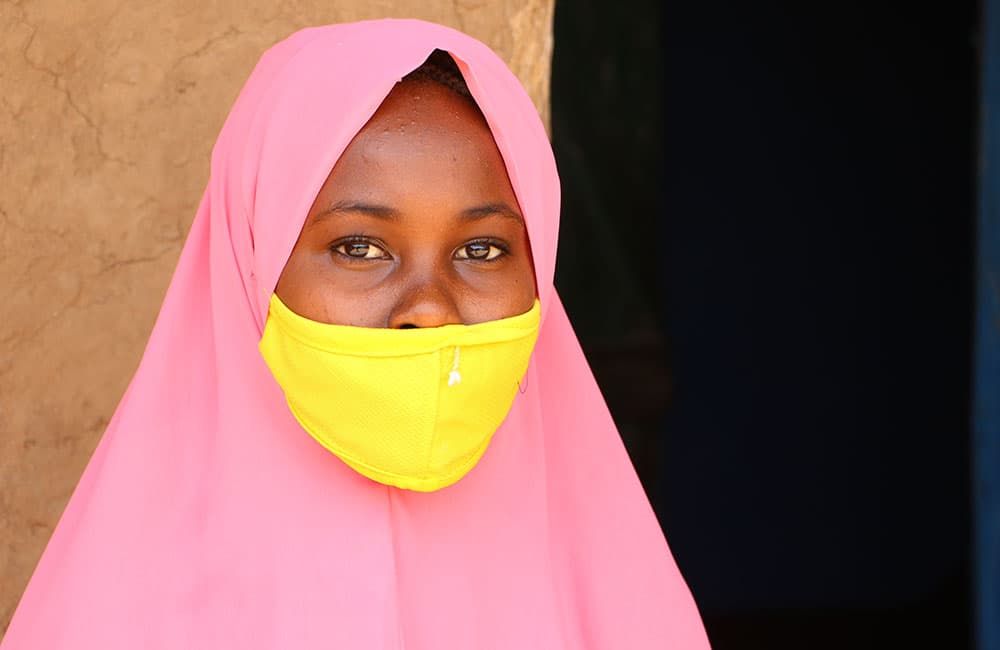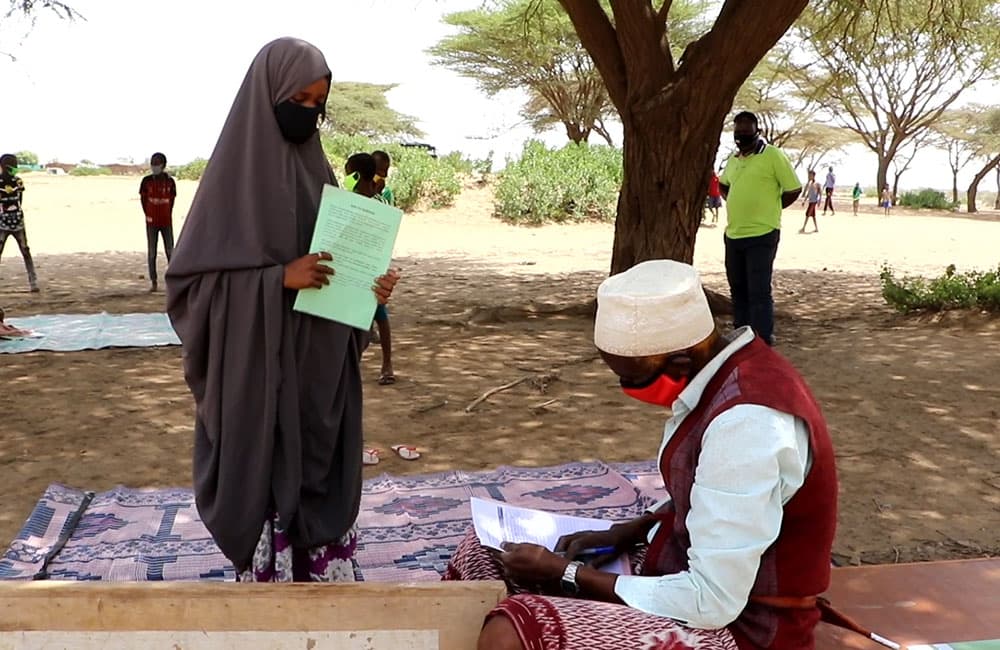But Mahadiya has dreams of being an engineer. A dream that will only be achieved if she can continue learning. And thanks to Save the Children’s unique mobile camel library she can. So even though schools are closed, each week she eagerly awaits the arrival of the ‘library on four legs’.

Mahadiya continues learning with books brought by the mobile camel library.
The man who brings camels and opportunity
In the Somali region of Ethiopia, camels are traditionally used to transport goods across the hot deserts. There’s often little other transportation in these remote regions. Save the Children’s mobile library program employs 21 camels. Each camel carries up to 200 books at a time in wooden boxes strapped to their back. These amazing animals travel vast distances to deliver their precious cargo of learning to over 22,000 children in 33 inaccessible villages.
Hassen, 45, is the man who brings the library to Mahadiya. He is one of more than 30 community volunteers trained by Save the Children as reading camp facilitators who help children living in isolated locations learn to read.
Hassen spends between 15 and 25 days at a time bringing books to children across the 33 villages. He loads the books, a tent, plastic sheets and mats into two boxes on one camel. A second camel and a camel herder accompany Hassen as a backup. At each village, the library stays for two and a half days bringing the joy of learning to the children there. After each library visit, there is a three-day break for the hard-working camels, herders and librarians, during which the camels are released to go and feed and given a medical check-up.

Mahadiya checks out books from the camel library.
Continuing to learn while schools are closed
Thanks to the camel library Mahadiya can continue to learn while schools remain shut.